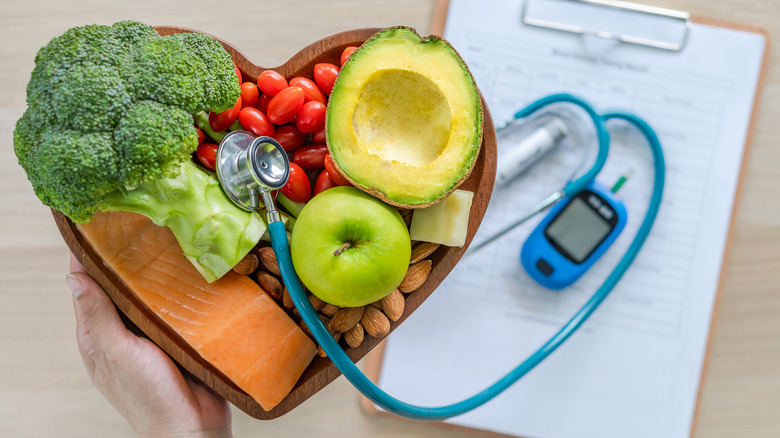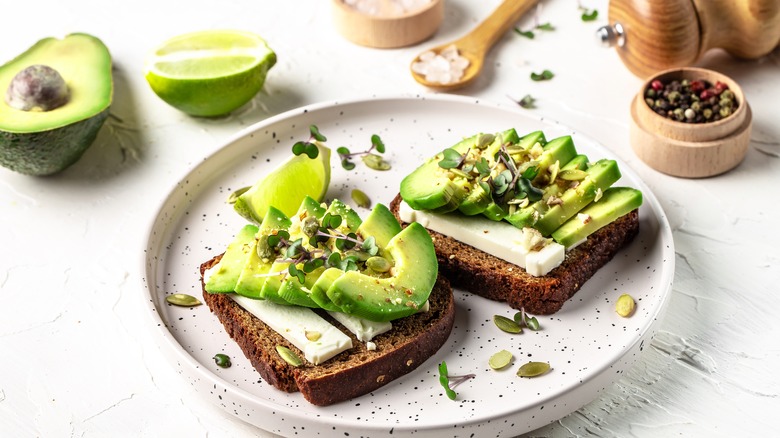These 2 Fruits Contain The Highest Amount Of Protein Per Cup
Protein supports the body in myriad ways and is a major "macronutrient," according to Harvard Health. It helps with tissue repair and affects muscles, skin, cells, and hair, per WebMD, while also carrying oxygen through your body and providing antioxidants for fighting disease. That's a whole lot of health benefits.
So, what's the best way to get that protein boost without overindulging in meats and dairy products? Though Cedars Sinai agrees that animal products such as meat, milk, and eggs supply complete proteins and essential amino acids, it also cites studies indicating that red meat consumption can lead to heart disease and a decreased lifespan. Fortunately, there's an alternative.
Though fruits don't typically pop to mind as a valuable source of protein, perhaps they should. Adding protein through Mother Nature's bounty doesn't mean picking just any low-hanging fruit — but two nutritious, delicious fruits, in particular, carry their weight in protein-packing goodness.
Fruits packed with protein
The avocado stirs debate over whether it's a fruit or a vegetable — but rest assured, it is indeed a fruit, per Healthline. It's botanically defined as a berry with a single seed and is nutritionally one of the best sources of fruit-based protein. A single cup of mashed avocados cradles 4.6 grams of protein, per WebMD. Avocados are also a good source of fiber, which could reduce poor health conditions such as diabetes, heart disease, and obesity, notes California Avocados.
Avocados also contain antioxidants, vitamins E and C, lutein and zeaxanthin for eye health, and potassium for lowering blood pressure, notes the CDC. A nutrition chart from the USDA, posted by Nutritionix, shows that a cup of cubed avocados contains 22 grams of fat, but zero harmful trans fats, per Mayo Clinic.
Second in line for fruit proteins is the cute little guava fruit containing 4.2 grams of protein in every cup, explains WebMD. With the flesh, seeds, and skins being perfectly edible, the protein potential multiplies. A deeper dive by WebMD into the health benefits of guavas reveals that guava leaves can be boiled for herbal teas. Nutritional benefits also include vitamin C (more than in oranges), antioxidants, iron, potassium, calcium, and more.
Fruits previously marched behind meats and dairy in the protein parade of foods — but no more. Now we know that avocados and guava fruits deserve a spot at the forefront of high-protein nutrition.

